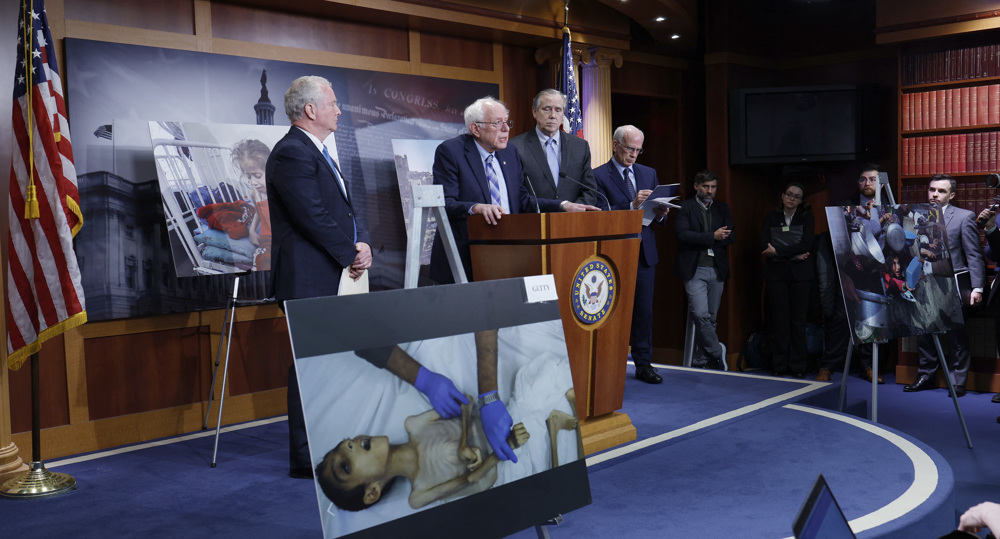N Korean leader playing dangerous game with US: McMaster
US National Security Adviser H.R. McMaster has said North Korean leader Kim Jong-un is playing a very dangerous game with the United States.
In an interview with ABC News on Sunday, McMaster said the United States is "taking all possible actions" to resolve the North Korean nuclear issue peacefully, but declined to rule out taking military action the country.
On Tuesday, President Donald Trump said the US would rain "fire and fury" on North Korea, which some interpreted as threatening the country with a preemptive nuclear attack. A day later, he doubled down on his threat saying a military option against North Korea is "locked and loaded."
In response of Trump’s dire warnings, North Korea said it was "carefully examining" a plan to strike the American Pacific territory of Guam with missiles.
The North Korean military said it could carry out a pre-emptive strike if there were signs of an American provocation.
Trump was criticized by both Democrats and Republicans for issuing a threat of launching a nuclear strike against North Korea with which the US has been in conflict since the start of the Korean War in 1950.

McMaster was asked on ABC's "This Week" on Sunday whether North Korean threats alone would provoke a military response from the United States, McMaster said it "depends on the nature of the threat."
"This is why what Kim Jong-un is doing is very, very dangerous," McMaster said. "Of course any response that we have we do in close cooperation with our allies in the region. As you know, we have been prepared for an escalation on the Korean Peninsula since the armistice in 1953."
"The difference between then and now is the danger is much greater," he added. "And it's growing every day, with every missile test, with the ... nuclear tests. And so what we can no longer do is afford to procrastinate. And President Trump has made it very clear, he cannot tolerate, will not tolerate, a threat to the United States from North Korea involving nuclear weapons."
The Korean Peninsula has been locked in a cycle of military tensions since the 1950-1953 Korean War, which ended in an armistice. No peace deal has been signed, meaning the two Koreas remain technically at war. The US was an ally of South Korea during the war.
McMaster said underscored the seriousness of rising tensions between the United States and North Korea but added that there is not immediate threat of war between the two.
"We're not closer to war than a week ago. But we're closer to war than we were a decade ago," McMaster said. "And, as Dr. [Henry] Kissinger made clear in a great op-ed this weekend, this has been a problem that we have procrastinated on for a long period of time, and now it's coming to a head. Where the threat from North Korea, not only to the United States but to the world, is very, very clear. And it demands a concerted effort by the United States, but with our allies and all responsible nations."
No ‘imminent’ threat of North Korea strike

Meanwhile, CIA Director Mike Pompeo said on Sunday that there is no “imminent” threat of North Korea attacking the United States with a nuclear weapon.
“There's nothing imminent today,” Pompeo said when asked what kind of threat the US is facing. “But make no mistake about it, the continuation, the increased chance that there will be a nuclear missile in Denver is a very serious threat, and the investigation is going to treat it as such.”
He added that the US and North Korea are not on “the cusp of a nuclear war.” There is “no intelligence that would indicate that we’re in that place today.”
The US is against North Korea’s nuclear weapons but Pyongyang says it will not give up on its nuclear deterrence unless Washington ends its hostile policy toward the country and dissolves the US-led UN command in South Korea. Thousands of US soldiers are stationed in South Korea and Japan.
VIDEO | Former FBI agent criticizes US Congress for 'outright corruption'
IRGC chief urges Muslim countries to cut aid routes to Israel
'New chapter in cooperation': Iran, Venezuela sign new MoUs
Jordan sentences former lawmaker for supporting Palestinian resistance
Basij volunteer forces hold massive drills in southwestern Iran
Israeli war criminals 'not welcome', US city says after ICC ruling
US vetoing of Gaza ceasefire resolution ‘disgraceful’: Iran’s UN envoy
VIDEO | IAEA adopts anti-Iran resolution tabled by E3


















 This makes it easy to access the Press TV website
This makes it easy to access the Press TV website